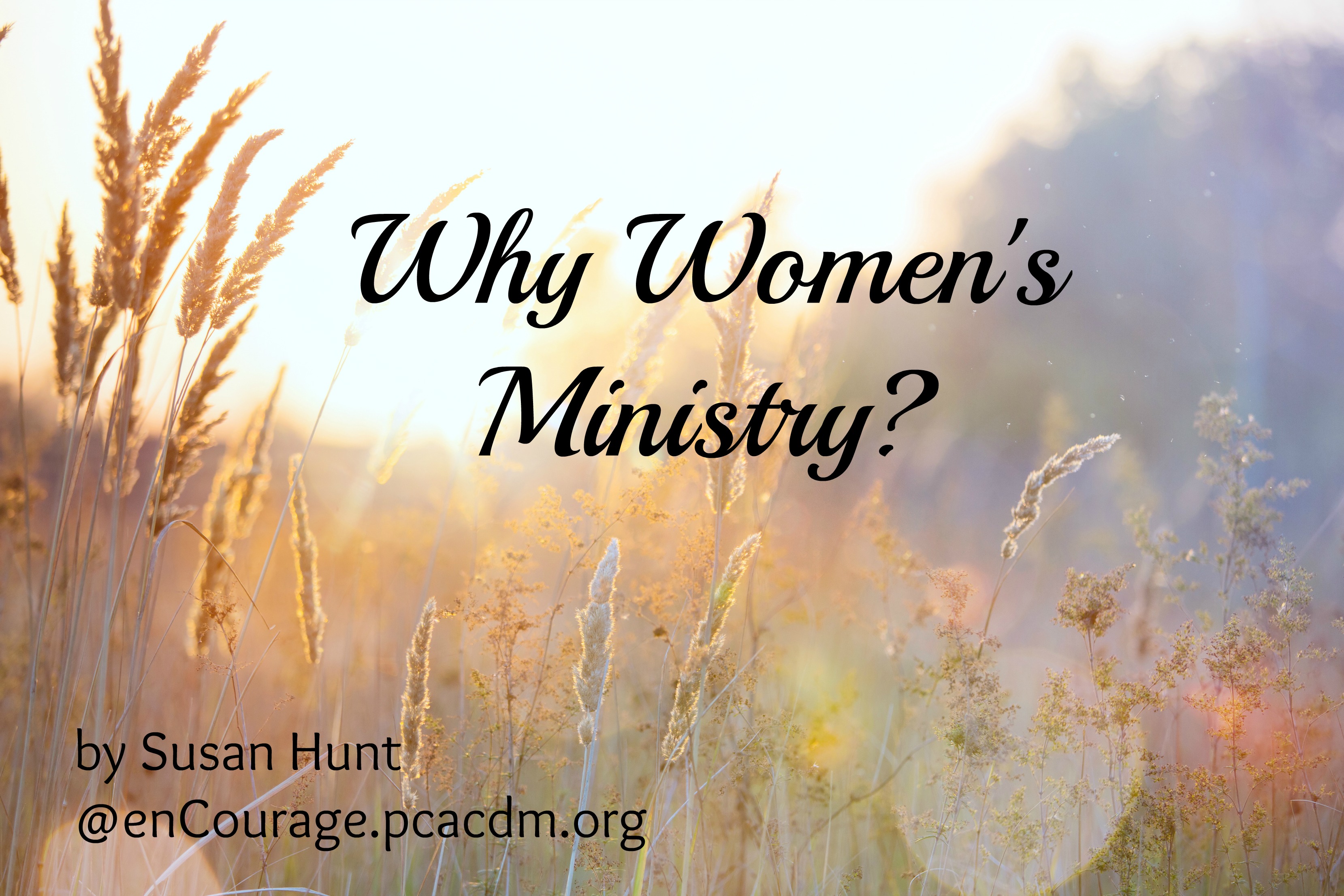SUSAN HUNT | CONTRIBUTOR
Have you ever asked why your church has a women’s ministry?
Or, perhaps the question is, “Why don’t we have a women’s ministry”?
When leaders clearly and frequently communicate Scriptural reasons why we do what we do, women are motivated and energized to value, participate in, and pray for the women’s ministry in their church.
There are many reasons a church should have a women’s ministry, but here are my top five to get the conversation started.
#1 Creation
So God created man in his own image . . . male and female he created them (Gen. 1:27).
Gender distinctiveness is woven into the creation story. The first man and woman were created equally in God’s image, but designed for different—equally valuable—functions. This equality but distinctiveness reflects the unity and diversity of the Trinity. The Father, Son, and Holy Spirit are “equal in power and glory” (Westminster Shorter Catechism Q. 6) but each assumes a different function in accomplishing our salvation (Eph. 1).
#2 Creation Design
The Lord God said, “It is not good that the man should be alone; I will make him a helper fit for him” (Gen. 2:18).
Our helper design should not be confused with our position in Christ. Our position is identical to man’s position: “There is neither Jew nor Greek, slave nor free, male nor female, for you are all one in Christ Jesus” (Galatians 3:28).
Everything God created, including our creation design, reflects aspects of Him. The Hebrew word translated helper, ezer, is often used to refer to God as our Helper. For example:
Our soul waits for the Lord; he is our help and our shield (Ps. 33:20).
God is our refuge and strength, a very present help in trouble (Ps. 46:1).
God is my helper; the Lord is the upholder of my life (Ps. 54:4).
He delivers the needy when he calls, the poor and him who has no helper (Ps. 72:12).
You, Lord, have helped me and comforted me (Ps. 86:17).
Our Ezer protects, shelters, upholds, delivers, and comforts us. These are strong, relational, caring, nurturing words. When we mirror His helper ministry, we bring covenant community and compassion into our various roles and relationships.
#3 The Fall
“. . . she took of its fruit and ate, and she also gave some to her husband who was with her, and he ate” (Gen. 3:6).
The man and woman disobeyed God, lost their relationship with Him and their ability to be what they were created to be. They reflected their selfishness rather than His glory to one another. The man’s helper became his harmer. The woman’s protector became her accuser. What a mess.
#4 Redemption
“I will put enmity between you and the woman, and between your offspring and her offspring; he shall bruise your head, and you shall bruise his heel” (Gen. 3:15).
God’s curse upon the serpent is His mercy to His chosen ones. Here is the first revelation of the covenant of grace. Adam affirms and celebrates his belief in the gospel promise of Life by naming his wife. “The man called his wife’s name Eve, because she was the mother of all living” (Gen. 3:20).
Eve sounds like the Hebrew word for life. Because of sin, the woman became a life-taker. Because of the gospel, she has the capacity to be a life-giver. This name ultimately points to Jesus, the Life who came into the world through a woman. Our ability to birth a child is a beautiful illustration of our redemptive calling to be life-givers, but it is not the only illustration. Every redeemed woman has the capacity to be a life-giver in every relationship and situation because Jesus lives in her, but we need to be discipled to become life-givers in practice.
#5 Commission
“Jesus came and said to them . . . ‘Go therefore and make disciples . . .teaching them to observe all that I have commanded you’” (Matt. 28:18-20).
This mission is made gender-specific in Titus 2:3-5: “Older women likewise are to . . . train the young women . . . ”
Not everything we do is gender-related, but there should be some opportunities in the life of the church where women obey Christ’s commission by training women to understand and fulfill our creation design (helper) and our redemptive calling (life-giver) for God’s glory.
Knowing biblical reasons for a women’s ministry provides a compelling reason to be a part of that ministry and protects the ministry from becoming task-driven rather than gospel-driven. We still do the tasks, but we are motivated and empowered by the gospel to do them in order to cultivate covenant community and extend covenant compassion for God’s glory and the advance of His kingdom.
For further thought:
Read the helper verses and reflect on how God helps you.
How have you seen other women extend this kind of help? Thank them.
What will it mean for you to be a life-giver in your relationships and situations?
How does the women’s ministry in your church reflect our creation design and redemptive calling?


